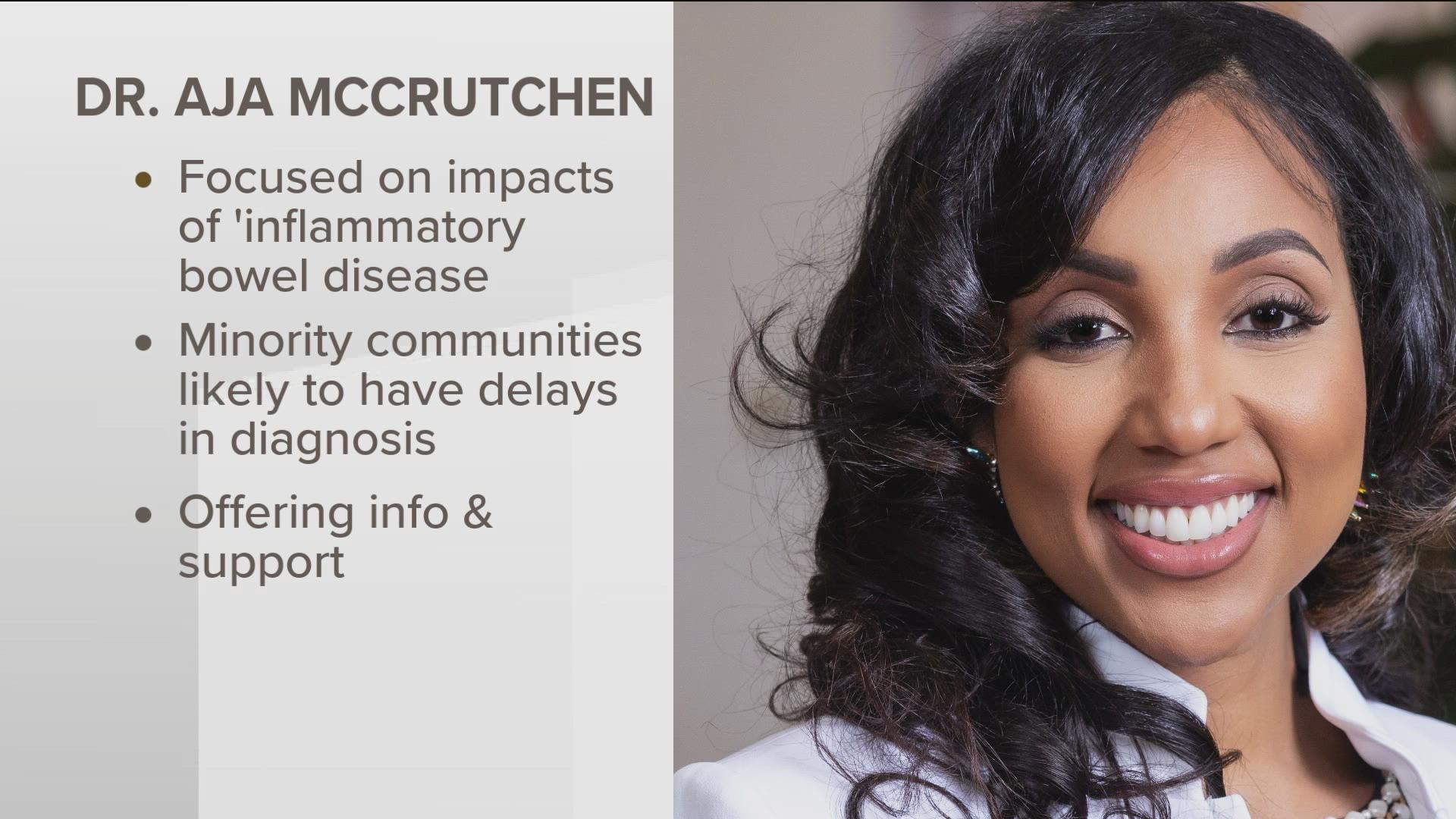ATLANTA — One Georgia doctor is making it easier for patients to answer those burning health questions.
On Saturday, Nov. 5, certified Gastroenterologist with Atlanta Gastroenterology Associates, Dr. Aja McCutchen will be honored at the Crohn’s & Colitis Foundation’s 32nd Annual Torch Gala as the Premier Adult Healthcare Professional of the Year for her work in bringing awareness and free health support to underrepresented and underserved communities who are living with Inflammatory Bowel Diseases (IBD).
In her early career, McCutchen said she saw many patients with IBD who lacked the proper knowledge concerning their diagnosis, in addition to many Black and brown patients having delays in diagnoses.
She told 11Alive that these factors contributed to many patients going through additional challenges with the disease.
“Oftentimes the emergency department was like their first point of contact and or where they received their diagnosis and they thought that that's where they should continue to get care if they were having a flare up or an exacerbation of their disease, not knowing that they were supposed to even connect with a gastroenterologist,” McCutchen explained.
Her solution was to create a “whole patient approach” that could not be done in the time it takes during a doctor’s visit.
“30 minutes, which was the amount of time that I had to now sort of explain what the disease was, what it meant, and so forth,” McCutchen said. “I didn't feel like I was able to really take care of the patient as a whole and equip them to go out and be able to live with this disease that will really change sort of their entire life experience.”
In 2018, McCutchen made it a goal of hers to get more information to rural and minority communities on the impacts IBD can have on patients. She partnered with the Crohn’s and Colitis Foundation to create a support group to bring education to these communities and provide them with an outlet to express the challenges they face while living with the disease.
“I also felt like it was my obligation as a woman of color to represent those that really, you know, didn't get a chance to have a strong voice or have someone that was linguistically or culturally similar to them to explain what this disease was,” she said.
The program started in Northeast Georgia as an in-person support group, but during those meetings, McCutchen said she did not feel like she accomplished her goal of “supporting the patient as a whole”.
She restructured the group to invite doctors and specialists to come to talk about the different aspects of life that might go unnoticed while living with IBD.
“This is an opportunity for us to open up Pandora's Box as it relates to supporting patients and bring on experts that would be able to answer their questions on a deeper level than what we were able to provide locally,” McCutchen said.
The special guests started covering topics concerning marriage with IBD, mental health, mindfulness during a flare-up, tips for remission and more.
Now, the support group is a free virtual educational series called MyIBD Learning with over 200 patients looking to share their stories and learn more about IBD and how to live with the condition.
The next virtual meeting will take place on Nov. 10 at 7 p.m., and McCutchen said everybody is welcome to join in on the discussion.
Registration for the event can be done on the Crohn’s and Colitis Foundation website.

